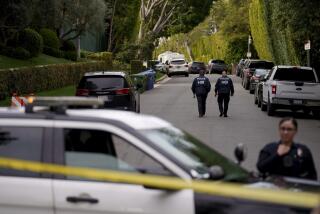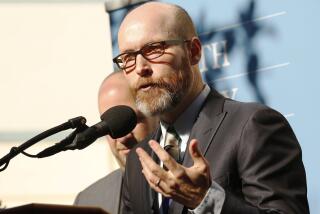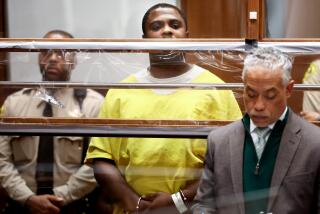It took two years to arrest Democratic donor Ed Buck despite shocking allegations, red flags. Why?
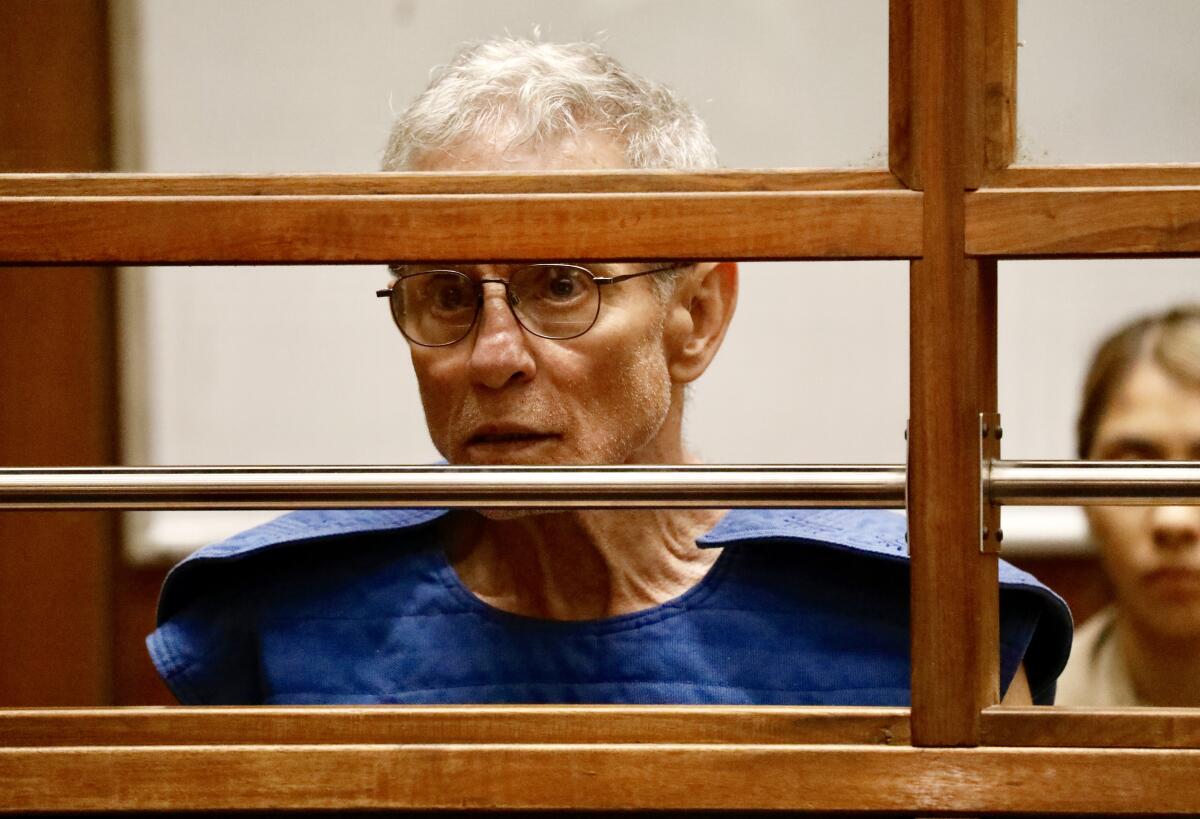
After a man was found dead inside the West Hollywood home of Democratic donor Ed Buck in 2017, authorities quickly had reason to believe the case was more complex than a drug overdose.
Los Angeles County sheriff’s detectives found nearly two grams of methamphetamine, syringes and drug paraphernalia throughout the residence. The dead man, Gemmel Moore, had written diary entries in which he said Buck got him addicted to meth.
In the weeks that followed, as activists from the black and LGBTQ communities contended that Buck was a dangerous predator, two more men came forward and told investigators Buck had pumped methamphetamine into their bodies against their will, court records show. A West Hollywood councilwoman said she, too, tried to urge the Los Angeles County district attorney’s office to take the stories seriously.
But Buck was not arrested until this month, when local prosecutors charged him with operating a drug den. Two days later, federal prosecutors accused Buck of providing the drugs that led to Moore’s overdose, charging him in connection with Moore’s death more than a year after the district attorney’s offic declined to do so.
The new revelations have added to questions about why it took so long to build a case against Buck. Community activists and Moore’s family have been particularly critical of Los Angeles County Dist. Atty. Jackie Lacey for not prosecuting Buck in the wake of the first death and have questioned the efforts of sheriff’s investigators.
In the time between Moore’s death and Buck’s arrest, a second man died of a drug overdose in his apartment, and authorities say a third nearly died of an overdose before escaping to a gas station and calling 911.
At least eight other men alleged to authorities that Buck provided them with drugs in exchange for participating in his drug-fueled sexual fetishes. Several claimed Buck injected them while they were sleeping, and two described incidents that amounted to allegations of sexual misconduct.
In an email, district attorney’s office spokesman Greg Risling said the agency “is legally and ethically required and committed to only bring charges that have sufficient, admissible evidence to convince an objective jury of a defendant’s guilt beyond a reasonable doubt.”
He declined a Times request for an interview and did not respond to a list of questions about the office’s decision not to charge Buck with lesser drug crimes or whether it had evaluated the sexual misconduct allegations.
Buck’s attorney, Seymour Amster, declined to discuss the case. The sheriff’s department also declined to comment.
Evidentiary issues appear to have plagued the original case against Buck. In a document filed when the district attorney’s declined to file charges in 2018, prosecutors listed insufficient evidence and an “inadmissible search and seizure” among the reasons not to prosecute Buck. Law enforcement leaders have never explained what, if any, illegal conduct was committed during the initial search of Buck’s home.
Lacey has said hearsay rules would have prevented prosecutors from using Moore’s journal against Buck. Legal experts suggested the same might have barred the testimony of his mother, LaTisha Nixon, who said Moore claimed Buck forced him to use meth.
Court records suggest that local prosecutors who declined to charge Buck in 2018 reviewed the same principal evidence that federal prosecutors did this year, though Risling said the charge connected to Moore’s death that was levied by federal prosecutors does not exist under California law.
While that is true, experts said Lacey’s office could have considered an involuntary manslaughter charge under state law. The likely explanation is that the federal charge carries a much stiffer penalty, said Laurie Levenson, a Loyola law school professor and former federal prosecutor who reviewed the affidavit filed in support of federal charges.
Buck would have faced a maximum of four years in prison if convicted of involuntary manslaughter in state court. He would serve a minimum of 20 years in prison if convicted of the federal charge.
Levenson said that the district attorney’s office probably could have charged Buck with a drug offense much sooner than it did.
“After two deaths … I don’t think there’s any doubt that there was probably a time before this week for them to go forward on these charges,” she said.
Levenson also said the additional witnesses probably were critical to the decision to charge Buck. Establishing a pattern of dangerous behavior would go a long way to short-circuiting his defense, she said.
“The prosecutors were anticipating the defense in Moore’s case to be ‘It was an accident.’ You don’t have an accident 10 times, so the pattern is key,” Levenson said. “Even though the facts haven’t changed, how you perceive them does.”
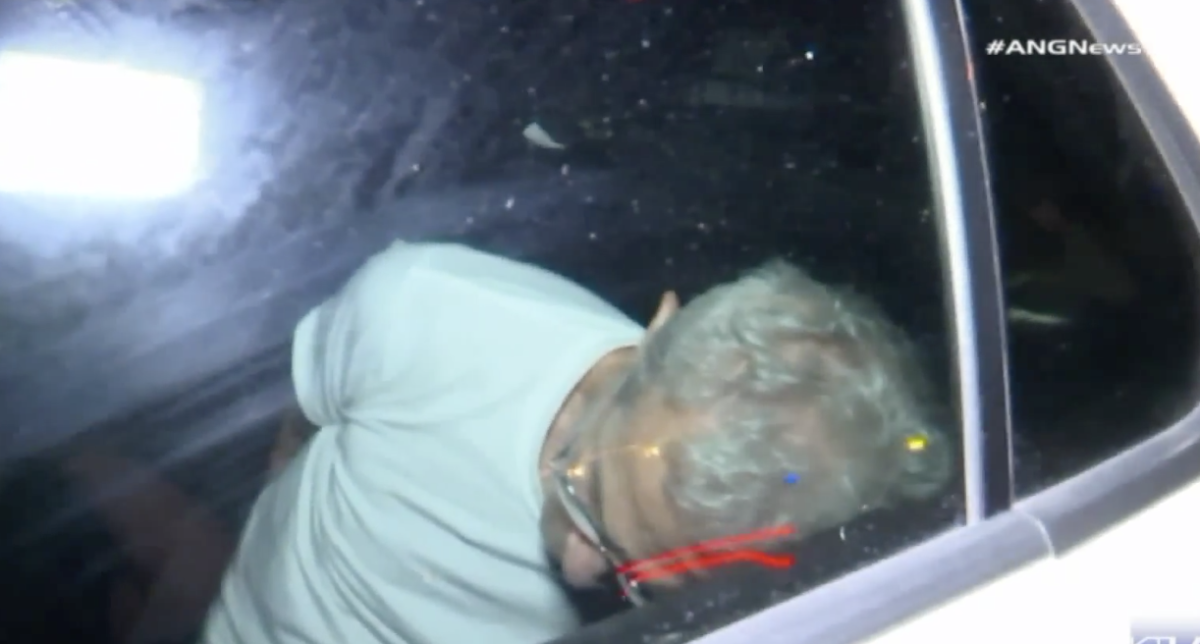
Federal prosecutors became involved in the case in June, after it was referred to their attention by a sheriff’s deputy working on a federal drug task force, said Thom Mrozek, a spokesman for the U.S. attorney’s office in Los Angeles. The federal case is expected to proceed to trial first.
While state and federal agencies said they collaborated on the case, law enforcement sources previously told The Times that there was a debate over which jurisdiction to charge Buck in. One source described the situation as a “fight.”
It is unclear why the district attorney’s office did not act on the drug-related accusations described in the federal complaint, though the court documents do not list specific dates and times of those incidents, meaning they could have been beyond a statute of limitations or difficult to corroborate.
The charges brought by the district attorney’s office this month are focused on a single victim, identified only as “Joe Doe.” The man, who spoke to The Times last week, said he had been homeless until he moved into Buck’s residence in late July.
According to the federal complaint, he lived with Buck for nearly five weeks, using drugs or having sex almost daily. After fleeing from Buck earlier this month, the man landed back on the street. The man declined to discuss his relationship with Buck.
Activists and attorneys involved in the case said the sheer volume of allegations in the federal complaint suggest Buck should have been arrested earlier.
“There were numerous Joe Does, and over two years, our team worked together to bring seven or eight Joe Does to the county. The county interviewed them,” said Hussain Turk, an attorney representing Nixon. “During these interviews, they each told their stories about how they were forced to ingest or forcibly injected with crystal methamphetamine at lethal doses, sometimes while they were passed out, not even conscious.”
West Hollywood Mayor Pro Tem Lindsey Horvath said she tried to encourage the district attorney to allow potential witnesses to speak with immunity from prosecution from other potential crimes, such as drug use or prostitution, in the wake of Moore’s death, but her calls to Lacey’s office were not returned. Horvath said she was able to speak to Lacey only after a second man, 55-year-old Timothy Dean, died in Buck’s apartment in January.
Attorney Nana Gyamfi, who represents some of the witnesses, said investigators expressed doubt about the men’s stories because they were sex workers.
“It was like they kept trying to disprove their own case,” she said.
Risling said “witness credibility” was among the issues that weighed on prosecutors when they declined to charge Buck in 2018, but he did not elaborate.
Nixon has repeatedly said authorities seemed uninterested in her son’s case, rarely contacting her during the investigation into his death. Nixon said she received one phone call from a sheriff’s detective last year — to tell her about the decision not to charge Buck.
She heard from county officials at least once more: when the coroner’s office sent her a bill for removing her son’s body from Buck’s home.
“I was going to pay it at first, but I thought about it and I said, why would I pay for someone murdering my son?” she asked.
Under California law, coroner’s offices can charge fees for the “transportation and storage of decedents.” Sarah Ardalani, a spokeswoman for the Los Angeles County coroner’s office, said the agency makes exceptions in the case of homicides, the deaths of military veterans and victims under 14, or if the family requests a fee waiver because of financial hardship. Moore’s death had been ruled accidental at the time, and Nixon did not apply for a fee waiver, Ardalani said.
Some have suggested that Buck’s status as a wealthy Democratic donor may have insulated him from prosecution at first. Buck, who first gained prominence as a registered Republican in Arizona, had contributed more than $500,000 to progressive causes in the last decade and supported candidates for the West Hollywood City Council, Los Angeles Unified School District board and the reelection campaign of Mayor Eric Garcetti.
But his donations to the campaigns of the law enforcement leaders tasked with pursuing him were small. Records show Buck donated $100 to Lacey in 2012. He never donated to the campaigns of former Sheriff Jim McDonnell or Sheriff Alex Villanueva, county records show.
Levenson said there were also other hurdles to charging Buck with Moore’s death.
“To be fair to Lacey’s people, there are some interesting causation issues, at least with the Moore case,” she said. “How were they going to prove it was Buck’s meth? How were they going to prove that Buck forced Moore to do this? Those are all legitimate questions.”
It remains unclear if Buck could face additional charges. Lacey has said he remains a “suspect” in Moore’s and Dean’s deaths.
Nixon said she is frustrated that it took a two-year saga to charge Buck but hopes federal authorities can finally succeed where others failed.
“I think they initially didn’t care. Think about it,” she said. “The black, gay community, a lot of people don’t care about them. I honestly think that’s why it took them so long.” Nixon said.
Times researcher Maloy Moore contributed to this report.
More to Read
Start your day right
Sign up for Essential California for news, features and recommendations from the L.A. Times and beyond in your inbox six days a week.
You may occasionally receive promotional content from the Los Angeles Times.
